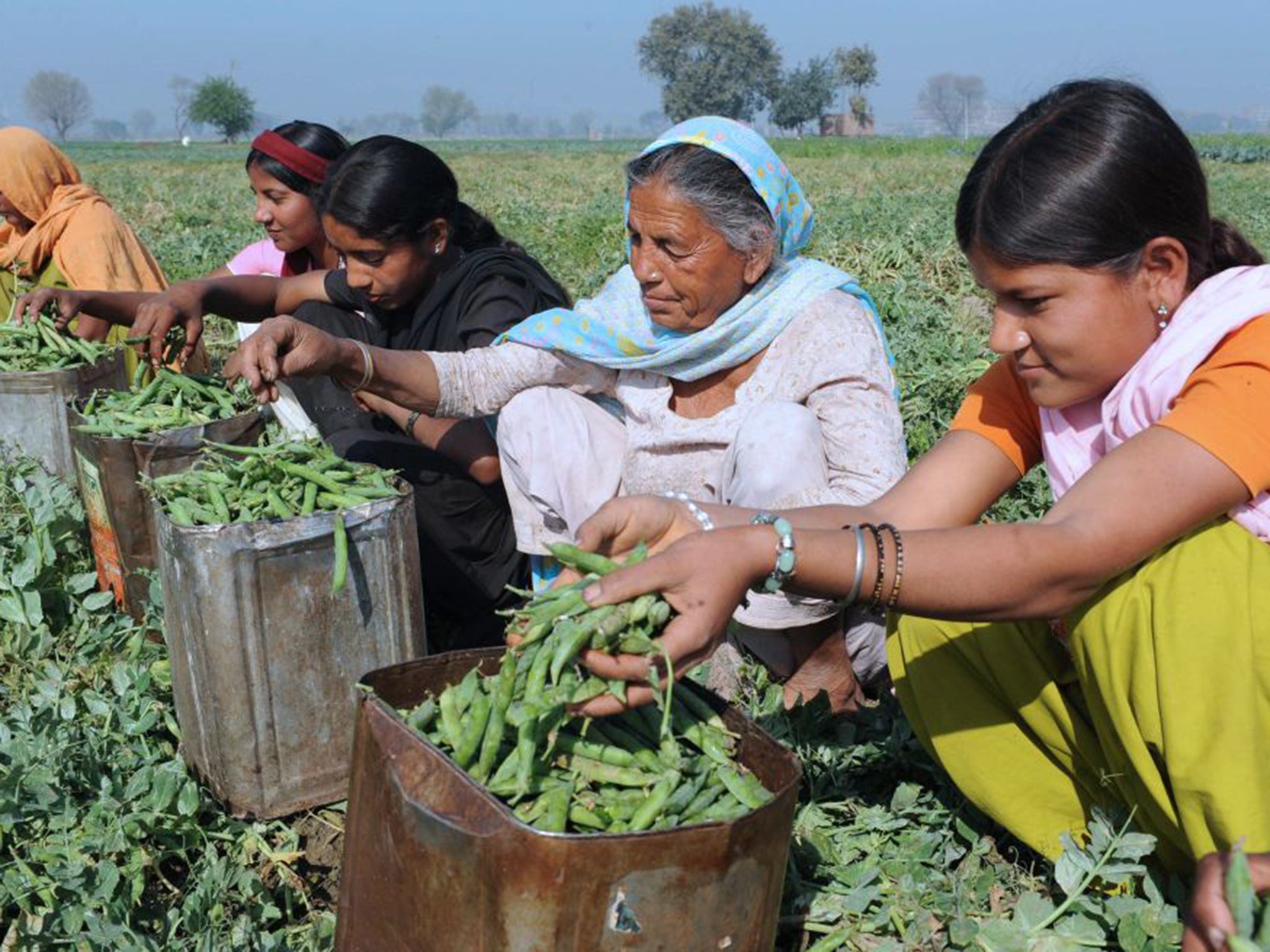The real price of peas: Our favourite veg is being blamed for greenhouse gases, but growing locally could change that
They produce more than 10 times their own weight in greenhouse gas emissions if flown in from outside Europe

We’re all for world peace, but world peas are proving a problem. The humble veg is making its mark on a global scale – and not in a good way.
Research has found that one of the UK’s most popular greens produces more than 10 times its own weight in greenhouse gas emissions if it is flown in from outside Europe. And that’s 20 times more carbon dioxide than peas grown naturally in this country.
The study reported that 8,000 tonnes of peas are air-freighted into the UK each year from countries including Kenya and Guatemala. The scientists said that increasing by about a quarter UK production of only five fruit and veg – peas, strawberries, cherries, garlic and apples – would reduce annual emissions dramatically.
“The climate change impact of flying food into the UK is considerable,” said Dr Peter Hooda, of Kingston University London, who co-authored the study which is published in the journal Environmental Science and Policy. “We worked out that reducing imports of those five fruit and veg by 25 per cent could save 28,900 tons of carbon dioxide a year.
“The amount of emissions associated with the air-freighted pea is enormous, generating [the equivalent of] 80,100 tons of carbon dioxide,” Dr Hooda said.
The report adds: “Local food production was found to be a much greener way of commodities’ sourcing, and has enormous potential for emissions’ savings.
“Choosing to buy a kilogram of each of the five that is grown locally would provide 51.83kg carbon dioxide equivalent of net savings in total.
“Our results demonstrate that the climate-change impact of flying food into the UK is considerable and results in embedding 9.48kg [of carbon dioxide equivalent] on average in each kilogram of fruit and veg.
“A shift towards consumption of local food while produced in season would have the minimal imprint on the environment, not only in the UK but also globally. As a whole, local food systems could offer considerable emissions savings.”
The study did not compare the carbon cost of producing fruit and veg in the UK outside of the growing season, or freezing seasonal produce for the winter, to flying them in from outside Europe.
Subscribe to Independent Premium to bookmark this article
Want to bookmark your favourite articles and stories to read or reference later? Start your Independent Premium subscription today.

Join our commenting forum
Join thought-provoking conversations, follow other Independent readers and see their replies